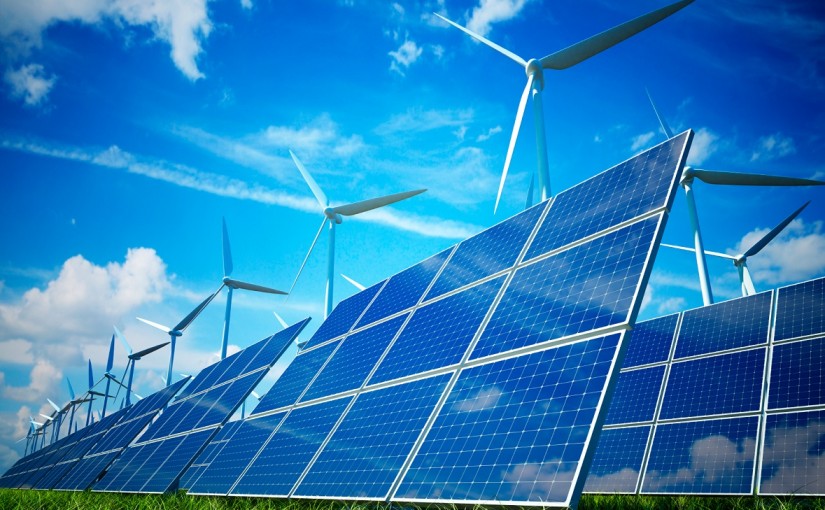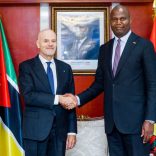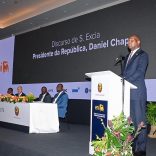The President of Mozambique Daniel Francisco Chapo meets Eni CEO Claudio Descalzi
Workshop opens on finance for renewable energies – Mozambique

File photo
The Mozambican authorities have, over the past ten years, electrified 310 small towns through new and renewable sources of energy, according to the chairperson of the government’s Energy Fund (FUNAE), Antonio Saide.
Talking to reporters in Maputo on Monday, after the opening of a workshop on the financing of renewable energies, Saide said that renewables now meet 15 per cent of the energy requirements in the country.
“The problem is that the investment in renewable energy is public investment”, said Saide. “We want to transform this paradigm by bringing the private sector in as a stakeholder in the discussion on the development of renewable forms of energy”.
Opening the seminar, the Minister of Mineral Resources and Energy, Leticia Klemens, said that investment in electricity, and particularly in renewable energy, favours the creation of a value chain that is indispensible for sustainable development.
Electricity, she stressed. “is an important catalyst for economic and social development, contributing to the flourishing and growth of industry, increased production, and improvement in living standards”.
Klemens added that at this month’s UN climate change conference in Marrakesh, Mozambique, the European Union, and 13 European governments had signed a joint declaration intended to support Mozambique draw up and revise energy policies, design energy projects and promote mobilisation of the private sector in the use of renewable technologies.
“Investment in the energy sector”, she said, “requires the adoption of measures that will allow constant improvement in the capacity to generate, distribute and use in an efficient and sustainable manner the energy produced from a variety of sources”.
“It is not enough to invest in this sector”, Klemens added. “We must also guarantee that the investment is accompanied by adequate technology and sufficient knowledge, allowing us to make the greatest gains from the technology implanted”.
A background paper from FUNAE and the International Renewable Energy Agency (IRENA) pointed out that Mozambique “has abundant, but under-exploited renewable energy resources, including solar, wind, hydro and biomass”.
Attracting private sector finance to develop such resources requires the creation of “an enabling environment that can attract and absorb the desired level of capital flows for both off-grid and grid-connected renewable energy markets”, the paper says. “Moreover they must work among themselves to engineer and implement policies and financial tools that can mitigate investment risks and help them get beyond the limited financing resources of donor agencies and development finance institutions”.
The three day workshop, the FUNAE/IRENA paper says, will “examine financial market conditions with an emphasis on future needs and dynamics, as well as barriers and potential solutions to renewable energy investments”.













Leave a Reply
Be the First to Comment!
You must be logged in to post a comment.
You must be logged in to post a comment.